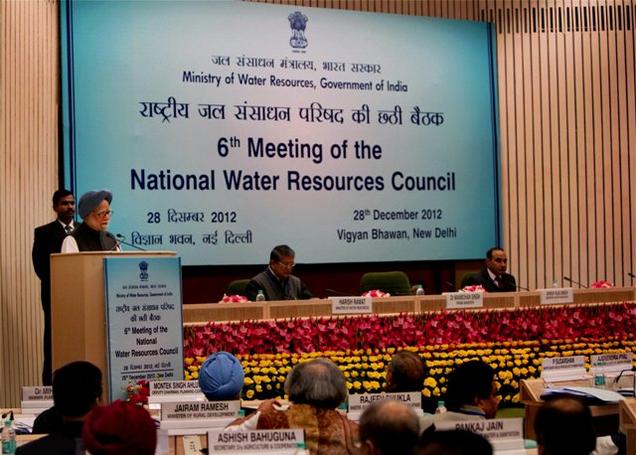Author : Dr. Arvind Kumar
The 2012 National Water Policy has been adopted despite opposition from the States to several contentious clauses in the policy. Prime Minister’s assurance that the Central government did not wish to encroach, in any manner, upon the constitutionally guaranteed rights of the States or to centralise water management, did not seem to work as State after the State opposed the move.
Many states have opposed the proposal to set up an overarching national legal framework for water governance on the plea that it would impinge on their rights, water being a State subject. Undoubtedly, the official line is that the States are free to take a call on adopting the revised policy.

However, there is a catch: reforms will be linked to Central funding for water projects. Tamil Nadu laments: “Incentivising States to undertake water reforms may mean tying up Central funding to so-called reforms measures like imposing water tariff on agriculture use or creating a water regulatory authority to fix tariff.”
The policy sees water as a community resource but also treats it as an economic good, which is contradictory. Water should be treated as goal for sustainable development.the lacunae in the National Water Policy entails the possibility of bringing about confusion in the decision-making process and facilitate the role of parties with vested interests. Providing incentives for recycle and reuse of water favours industry. Instead of incentives, strict enforcement of punitive laws to punish those industries that waste water and pollute it should be undertaken.